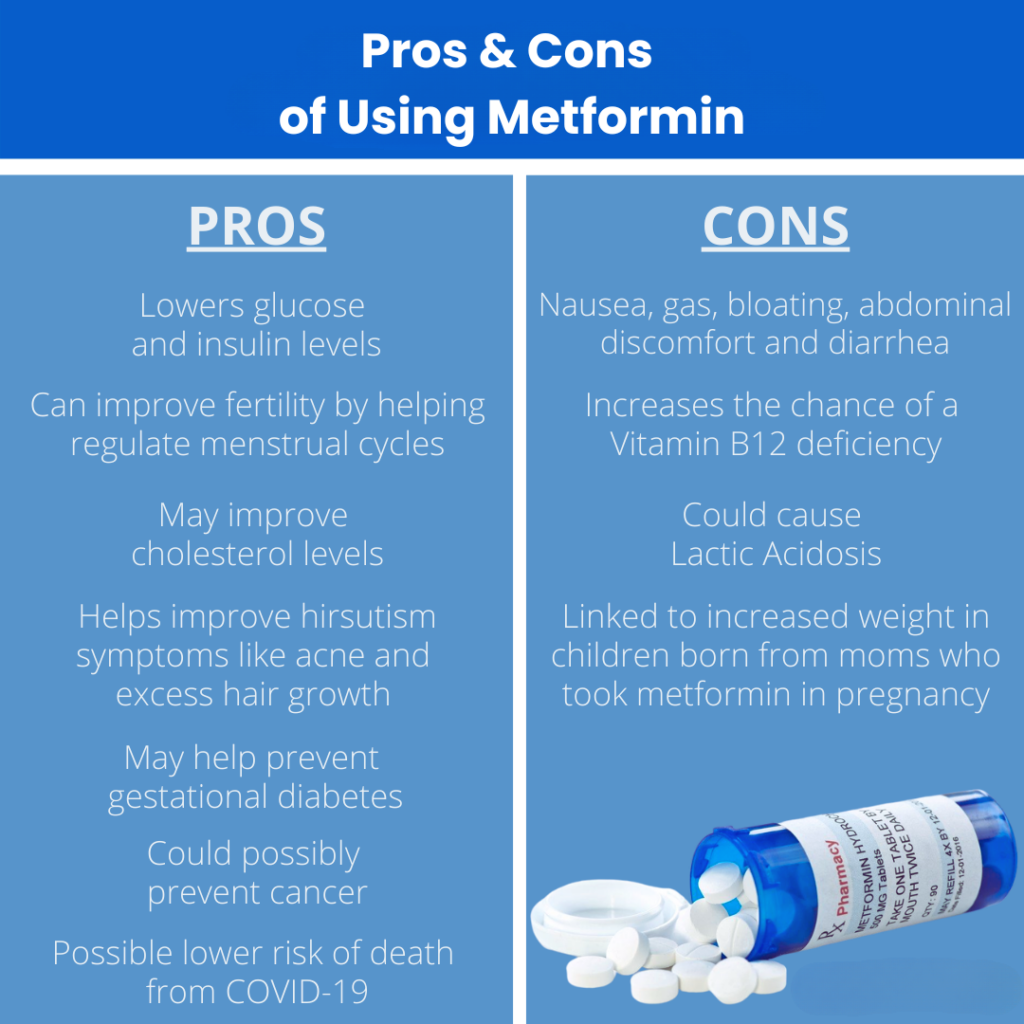Back To Top
Metformin for Weight Reduction: Can It Help You Lose Weight? Metformin, a medication primarily prescribed to help individuals manage their blood sugar levels in cases...

Metformin, a medication primarily prescribed to help individuals manage their blood sugar levels in cases of type 2 diabetes, has garnered attention for its potential side effect of weight loss. Using Metformin for weight loss, is not officially approved by health authorities as a weight loss drug, some healthcare providers may recommend the off-label use of Metformin for weight loss purposes.
The concept of ‘off-label use’ refers to the prescribing of a medication for a purpose other than its officially approved indication. In the case of Metformin, some doctors may consider its potential benefits for weight loss in certain patients, even though weight loss is not the primary reason for prescribing this medication.
The interest in using Metformin for weight loss stems from personal experiences and limited clinical studies suggesting that it may help reduce appetite and improve insulin sensitivity, both of which could contribute to weight loss in some individuals. While the exact mechanisms behind Metformin’s potential weight loss effects are not fully understood, its ability to regulate blood sugar levels and improve insulin function may play a role.
It’s important to approach the off-label use of Metformin for weight loss with caution and under the guidance of a healthcare professional. Consulting with a doctor can help determine whether Metformin is a suitable option for weight management based on individual health needs and considerations.
While more research is needed to establish Metformin’s efficacy and safety specifically for weight loss, the ongoing interest in its potential benefits underscores the importance of exploring different treatment options with healthcare providers to address weight management goals effectively. You can buy Metformin safely and securely at Mesforless.
Metformin primarily works by suppressing glucose production in the liver and improving insulin sensitivity, which enables cells to remove sugar from the blood more effectively. This process not only aids in controlling blood sugar levels but also may contribute to a slight decrease in appetite, leading to a reduction in calorie intake.

Metformin is widely recognized for its role in managing type 2 diabetes. It’s the preferred medication because it effectively lowers blood sugar levels and is generally well-tolerated. It also has a positive effect on heart health, as it can help lower levels of bad cholesterol and fats in the blood.
Although Metformin is not specifically a weight loss medication, it can support weight management indirectly through better blood sugar control and improved insulin function. For individuals managing type 2 diabetes, maintaining a healthy weight is often an essential part of their overall care plan, making Metformin’s weight-neutral or modest weight loss effect a welcome bonus. Visit our Diabetes Treatment Section and discover a range of diabetes medications.
Polycystic Ovary Syndrome (PCOS) is a health condition that affects women’s hormone levels, menstrual cycles, and fertility. Many women with PCOS also have a hard time using insulin, which is a hormone that helps control blood sugar levels. This is where Metformin comes in.
Metformin is a medication commonly used to treat type 2 diabetes, but it’s also found to be helpful for women with PCOS. It works by making the body more responsive to insulin, which can help lower blood sugar and can also improve some of the symptoms associated with PCOS, such as excessive hair growth and acne.
For women with PCOS who struggle with irregular periods, Metformin can be a significant aid. Having regular menstrual cycles is crucial for women’s health and can reduce the risk of developing other health issues. Explore further with our ‘Do I Have PCOS Quiz’ to deepen your understanding of PCOS and assess your likelihood of having it.
Women dealing with Polycystic Ovary Syndrome (PCOS) often face hurdles in conceiving due to irregular ovulation. Metformin, while not primarily a fertility drug, has shown promise in assisting these women. It operates by lowering insulin levels, which can sometimes reduce the levels of male hormones (androgens) that are often elevated in PCOS. This hormonal shift can improve the frequency of ovulation, thus enhancing the likelihood of pregnancy.
Metformin’s role in fertility for PCOS patients is as a supportive agent; it is used to restore a more favorable hormonal balance, thereby boosting the body’s own reproductive capabilities. It’s particularly valuable for those whose PCOS manifests with insulin resistance, a condition that can interfere with ovulation.
While Metformin alone may not be the solution for all fertility challenges linked to PCOS, it often forms a key component of a multifaceted treatment approach. For many women with PCOS, it provides a stepping stone toward achieving regular menstrual cycles and improving their chances of conception.
Starting Metformin for type 2 diabetes often leads to an important question: how quickly will it lower blood sugar? Generally, patients may notice their blood sugar levels begin to drop within the first week of treatment. Yet, the full effect of Metformin develops gradually. It can take about two to three months of regular use to experience the most benefit. During this period, it’s essential to take the medication exactly as your doctor has instructed and keep up with regular health check-ups.
Metformin is widely chosen as the first medication for managing type 2 diabetes because it effectively lowers blood sugar and has a low risk of causing weight gain. In some cases, to achieve better control over blood sugar levels, your doctor might prescribe Metformin alongside other medications. This treatment is meant for long-term use to ensure blood sugar levels remain stable over time, helping to prevent diabetes-related health issues.
Additional Information: Effectiveness of metformin on weight loss in non-diabetic individuals with obesity
The dosage of Metformin for weight loss has not been standardized due to its off-label use for this purpose. Commonly, the same doses used to treat diabetes are prescribed, such as metformin 500mg or metformin modified release, but always under medical supervision.
The dosage of metformin varies depending on the formulation:
1. Immediate-release tablets: Patients may begin with a dose of 500 milligrams once or twice daily. Alternatively, a once-daily dose of 835 milligrams may be prescribed. The dosage can be increased gradually by the doctor to reach a maintenance dose of either 850 or 1,000 milligrams taken twice daily.
2. Extended-release capsules: Initially, these are taken once a day at either 500 or 1,000 milligrams. The doctor may incrementally raise the dosage to a maximum of 2,000 milligrams once or twice daily based on the individual’s needs and response to the medication.

Despite anecdotal reports and some studies suggesting weight reduction benefits, Metformin should not be categorized as “weight loss pills for type 2 diabetes.” For those seeking alternatives, new medications have emerged, such as Wegovy and Ozempic injections. These GLP-1 receptor agonists are designed to promote weight loss and improve glycemic control in people with type 2 diabetes and have been gaining popularity for their efficacy.
Although, Wegovy (semaglutide) had been approved by regulatory agencies, such as the FDA , for weight management in addition to diet and exercise. Ozempic (semaglutide) was primarily approved for the treatment of type 2 diabetes and not specifically for weight loss, although weight loss is often a beneficial side effect for many individuals using Ozempic for diabetes management.
At MedsForLess, we offer a wide selection of effective weight loss medications to support your journey towards a healthier you. Discover our comprehensive range of weight loss treatments on our dedicated weight loss treatment page for more information and find the solution that best fits your needs.
Additionally, explore our informative blog titled “Comparing Wegovy vs Ozempic: Making the Right Choice” to delve deeper into how these weight loss medications work and determine which option may be more suitable for your weight loss journey.
While most people tolerate metformin well, like any medication, it can cause side effects in some individuals. Here is a list of potential side effects associated with metformin:
– Nausea
– Vomiting
– Diarrhea
– Abdominal discomfort or cramping
– Loss of appetite
– Lactic acidosis (a rare but serious side effect): weakness, unusual muscle pain, trouble breathing, dizziness, lightheadedness, fast or slow heart rate
– Vitamin B12 deficiency with long-term use
– Metallic taste in the mouth
– Hypoglycemia (low blood sugar), especially when used with other diabetes medications
– Skin reactions: rash, itching, redness
– Changes in taste perception
– Respiratory issues: shortness of breath
– Liver problems: elevated liver enzymes
Individual reactions to metformin can vary, and not everyone will experience these side effects. For more detailed information on metformin’s side effects and usage, you can refer to the Metformin patient information leaflet.
In conclusion, while Metformin for weight loss is not officially approved, its potential benefits in this area cannot be entirely dismissed. Those considering buy Metformin online for weight management should do so with caution and under professional medical guidance.
Can Metformin cause diarrhea?
Metformin is known to be associated with gastrointestinal side effects, including diarrhea, in some individuals. This is more common when starting the medication or when the dosage is increased. If you experience persistent or severe diarrhea while taking metformin, it is important to consult your healthcare provider. They may recommend adjustments to your dosage or provide guidance on managing this side effect effectively.
Will Metformin make you lose weight?
While weight loss is a potential side effect of metformin, it is not guaranteed for everyone who takes the medication. Some individuals may experience weight loss as a result of improved blood sugar control and reduced insulin resistance. However, the extent of weight loss can vary among individuals, and factors such as diet, exercise, and overall health play a significant role in the outcome.
How to get Metformin Prescription without Diabetes?
It is not recommended to obtain a prescription for metformin without a proper medical evaluation and diagnosis from a healthcare provider. Metformin is a medication commonly prescribed for managing high blood sugar levels in individuals with type 2 diabetes. It is not typically prescribed for use in individuals without diabetes unless there is a specific medical reason determined by a healthcare professional.
No FAQs available.
Fast, Discreet, and Convenient
We're here to support :)
We are available Monday through Friday from 9am to 4pm. Do not use this service if you need urgent assistance. You should call 111 or 999 in an emergency. See our help section for more information.
Payment Options




| Cookie | Duration | Description |
|---|---|---|
| cookielawinfo-checkbox-analytics | 11 months | This cookie is set by GDPR Cookie Consent plugin. The cookie is used to store the user consent for the cookies in the category "Analytics". |
| cookielawinfo-checkbox-functional | 11 months | The cookie is set by GDPR cookie consent to record the user consent for the cookies in the category "Functional". |
| cookielawinfo-checkbox-necessary | 11 months | This cookie is set by GDPR Cookie Consent plugin. The cookies is used to store the user consent for the cookies in the category "Necessary". |
| cookielawinfo-checkbox-others | 11 months | This cookie is set by GDPR Cookie Consent plugin. The cookie is used to store the user consent for the cookies in the category "Other. |
| cookielawinfo-checkbox-performance | 11 months | This cookie is set by GDPR Cookie Consent plugin. The cookie is used to store the user consent for the cookies in the category "Performance". |
| viewed_cookie_policy | 11 months | The cookie is set by the GDPR Cookie Consent plugin and is used to store whether or not user has consented to the use of cookies. It does not store any personal data. |